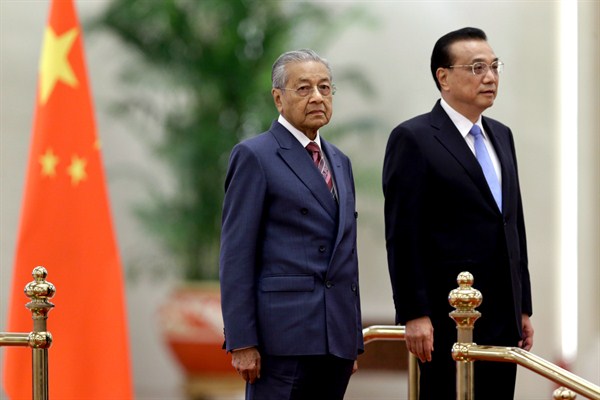Editor’s note: This article is part of an ongoing WPR series about China’s ‘Belt and Road’ Initiative, a major infrastructure and development program across Eurasia.
Speaking to reporters on the final day of a five-day visit to China last month, Malaysian Prime Minister Mahathir Mohamad announced that his government would cancel three major Chinese-financed infrastructure projects due to concerns over the projects’ costs and debt burdens. The announcement came as other Chinese-financed projects in Pakistan and Sri Lanka—part of the country’s sweeping Belt and Road Initiative—ran into trouble. In an email interview, Yun Sun, director of the China Program at the Stimson Center, discusses the implications of Malaysia’s decision for its relations with China, as well as what the move might mean for future Chinese projects elsewhere.
World Politics Review: What are the political, economic and budgetary factors that led Mahathir to halt government contracts on three major China-linked infrastructure projects?

